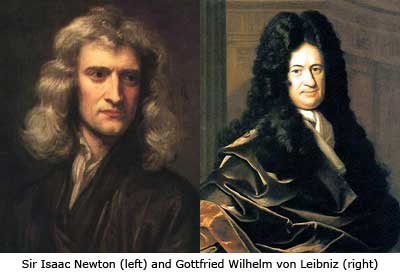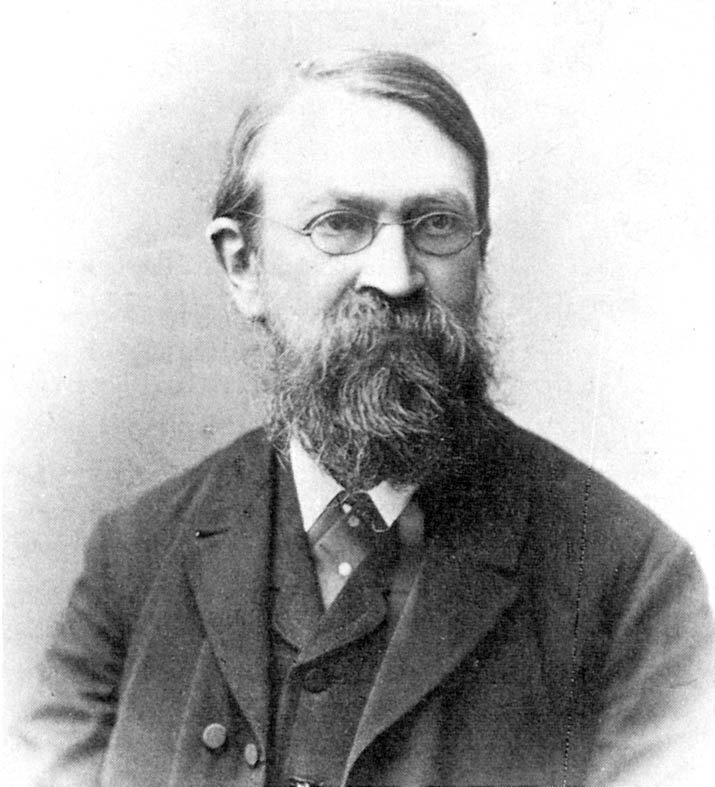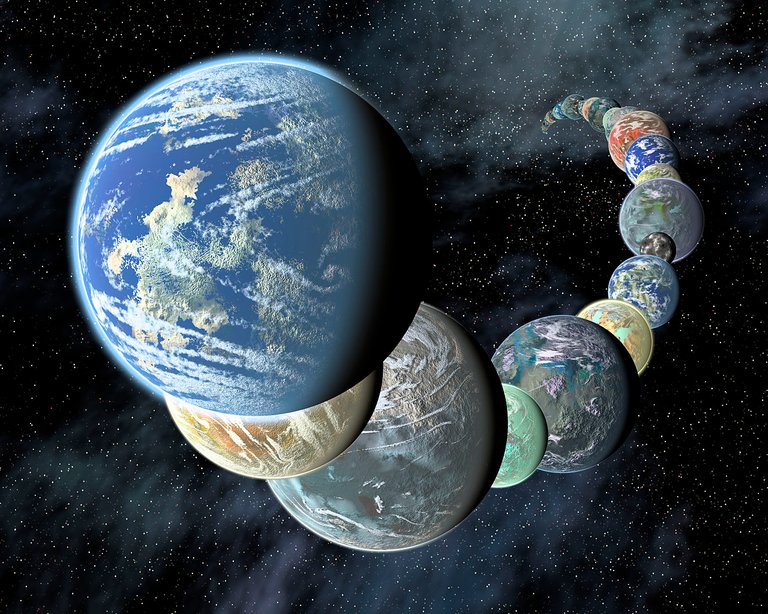This post will be a little detour from the sort of things I usually write as it a subject that interests me immensely, The Philosophy of Physics. Throughout this article I will give a brief argue for Newton’s substantivalism view of space against Leibniz’s claims about relationist space.

Relationism and Substantivalism
The question of the nature of space and time has been debated and dissected by philosophers and physicists, still with no discernible conclusion. The two leading schools of thought on this topic are Relationism, argued by Leibniz and, Substantivalism, argued by Newton. Relationism describes space and time as a “collection of … spatial relations” between material objects (Sklar, 1992, p21). Substantivalism, on the other hand describes space and time as a legitimate entity over and above the bodies which exist in it, in other words, part of the ontology of the Universe (Saatsi, 2017).

Spinning Bucket experiment
Inertial and non-inertial motion of bodies in different reference frames in a three-dimensional Euclidean space can only be described by an acceleration moving relative to space itself. Using this experiment, Newton could empirically prove the notion of absolute acceleration corresponding to a substantivalist view of space and time.
Newton described a bucket of water suspended by a wound-up rope kept at rest. If the rope was allowed to unwind, the bucket would spin around the vertical axis of the rope and the water would stay at rest. After some time, the water would start to spin with the bucket, forming a concave shape.

Figure 1: Newtons spinning bucket experiment (Dasgupta, 2015, pp601-624)
The water forms this concave shape independently of the motion of the bucket, so what is it accelerating with respect to? The direction of the water is constantly changing over time, this can be attributed to the water accelerating with respect to absolute space. This supports substantivalist claims of all bodies moving relative to an absolute acceleration of space.
Relationism fails to explain this outcome. A relationist would assume that motion of an object is relative to motion of its neighbouring object, meaning that the water should move relative to the bucket (Descartes, R. 1983). However, in State 3, the water appears at rest relative to the reference frame of the bucket meaning that the motion of the water cannot be explained without the notion of absolute acceleration.
The Austrian physicist and relationist Mach, pictured below, disputed Newton, he pointed out that the Earth’s rotation is determined by the surrounding stars (Sklar, 1992, p24). Thus, The Rotating Bucket is invalid as, although the movement of the water doesn’t produce centrifugal forces with respect to the bucket, the forces causing the acceleration could be with respect to the “fixed stars” of the Universe (Mach, 1989, Science of Mechanics). Essentially, Mach argues that material bodies of outer space may have some unknown effect on the motion of the water. We have no way of knowing how the water will move in a completely empty universe and whether it would act in the same way as in this experiment. Although this response challenges Newton by pointing out a failing in the logic of the argument, it doesn’t provide a relationist explanation of the motion of the water.

Rotating Spheres Argument
This thought experiment describes two globes connected by a cord rotating around a common axis.

Figure 2: Newton's Rotating Spheres argument
The only method to discern whether the spheres are moving would be to measure the tension in the cord. An observer moving with the same rate of rotation as the spheres (therefore with no relative motion between them) would measure a tension in the string. Thus revealing that the globes are rotating relative to an absolute acceleration of space. Observers in alternate reference frames would measure a tension different to that of the ‘absolute tension’ of the universe (McDonough, J). Similarly to the bucket experiment, this argument sets up a scenario that only a real substantivalist space can explain.
However, Mach’s relationist response still holds as the experiment omits any impact of the celestial bodies of the universe on the rotating spheres. The rotating spheres argument can be said to be redundant as we have no way of knowing how removing these objects would impact on the rotation of the globes. However, Mach’s incapability to produce an explanation in terms of the relations between the spheres in a relationist space means that, for me, Newton’s argument prevails.
Train Argument

Consider two trains, A and B, moving in relative acceleration to each other, for example, A is at rest and B is accelerating towards A. From the frame of reference of each train it would appear to an observer as if the other train was accelerating. An observer in the accelerating train would experience a force jerking them backwards whilst the observer in the train at rest would experience no such force. This can only be explained by a substantivalist absolute acceleration of space impacting on the motion of the accelerating train (Sklar, 1992, p22).
This is difficult to contend with for a relationist and Leibniz himself acknowledged that a notion of which train, A or B, is moving is essential. (Sklar, 1992, p22) Newton assumes that the relative accelerating of the train is with respect to space itself, where as a relationist could again argue that it is with respect to the bodies of the space and their relations with the train. In completely empty universe we have no way of knowing what forces the observers on the trains would experience.
Leibniz shift

In the Leibniz-Clark correspondence, Leibniz put forward the idea of shifting all the material of the universe in absolute space and how this proved problematic for substantivalists.
Leibniz’s utilised The Principle of Sufficient Reason that ’every fact must have a sufficient reason for being the case’ (Sklar, 1992, p21). This challenges Newton as there would be no reason that the universe couldn’t be shifted to any other location with all the same relations between bodies without creating any observable difference. The location of Newton’s physical entity space has no reasoning behind it and thus cannot be correct. (Sklar, 1992, p21). The view that everything happens for a reason is somewhat subjective to what an individual believes about fate. In addition, a substantivalist could argue against this principle by stating ‘Why does God need a reason to create the universe?’, there was no reason for creation so the notion that everything happens for a reason is somewhat redundant.
Empty space and time
A relationist outlook of space and time relies on the locational and temporal relations between bodies and events. This is fraught with errors when one considers the positions in space where no material bodies exist or the times when nothing happens. Consider The Big Bang; the instant after the Universe was created, the conditions were extremely hot and dense and no matter existed. As the Universe cooled, the conditions were formed for quarks to be made (Anon, 2012). Before this time, there were no material bodies in the universe so there could be no relations between bodies, does this mean that we deny this time in space as existing even though it is defined as the beginning of space. This provides a massive loophole in Leibniz’s views.
Conclusion
In this debate the borders between Philosophy and Physics are merged and contested to resolve the question of the nature of space and time. I believe that Newton’s views about absolute space carried the day due to the logical experiments that demonstrate evidence of an absolute acceleration. However, neither Leibniz nor Newton had any understanding of quantum mechanics or general and special relativity and with these theories of modern physics their outlook on the nature of space and time could have been different.
Please note that images used in this article have been labelled as re-usable on Google images. If any artists or designers have any issues with the content used, don't hesitate to contact me to correct the issue.
References
Descartes, R. 1983. Principles of Philosophy. V. R. Miller and R. P. Miller (trans.). Dordrecht: Klewer Academic Publishers.
Mach, E. 1989. The Science of Mechanics, sixth edition with revisions through the ninth edition. LaSele, Illinois: Open Court Publishing.
McDonough, J. Newton’s Scholium on Time, Space, Place and Motion. [27/11/2017]. Available from: aardvark.ucsd.edu/grad_conference/mcdonough.doc
Skar, L. 1974. Space, Time and Spacetime. Berkeley: University of California Press
Sklar, L. 1992. Philosophy of Physics. United States of America: Westview Press.
Anon. 2012. The early universe. [01/12/2017]. Available from: https://home.cern/about/physics/early-universe
Dasgupta, S. 2015. Substantivalism vs Relationism About Space in Classical Physics. Philosophy Compass. 10(9), 601-624. [28/11/2017]. Available from: http://0-onlinelibrary.wiley.com.wam.leeds.ac.uk/doi/10.1111/phc3.12219/full
O’Connell, Cathal. 2017. Physicists make something from nothing with ‘virtual’ particles. [01/12/2017]. Available from: https://cosmosmagazine.com/physics/physicists-make-something-from-nothing-with-virtual-particles
Saatsi, Juha. 2017. Introduction to Philosophy of Modern Physics. [01/12/2017]. Available from: https://minerva.leeds.ac.uk/bbcswebdav/pid-5232633-dt-content-rid-9591073_2/courses/201718_ARTS_MM6940/Lecture%202.pdf
Ward, J. 2002. Philosophy of Physics: Arguments for the ‘absolutist’ and ‘relationist’ views of space. [30/11/2017]. Available from: http://www.maths.lse.ac.uk/Personal/james/York/lect12.pdf
This is greatly undervalued. You just won a follower. Keep up the good work.
Much appreciated! I'm planning more posts on Physics of Philosophy in the future, look out them! :)
Funny enough I don't see why so many people are not interested in physics or anything that has to do with science, this is one of the best post I have seen regarding physics... Well done keep up the good work, you have earned my resteem
Thank you so much! I'm glad you enjoyed! :)
Fantastic arguments in here, keep up the great work!
Thankyou for your support! :)
To look into history, lots of great scientists was progress many Technology. They gives us lots of instruments for a easy life. Great post!!! This is my post about acid-base in Chemistry :-
https://steemit.com/science/@pradeeprajora/theory-s-about-acid-base